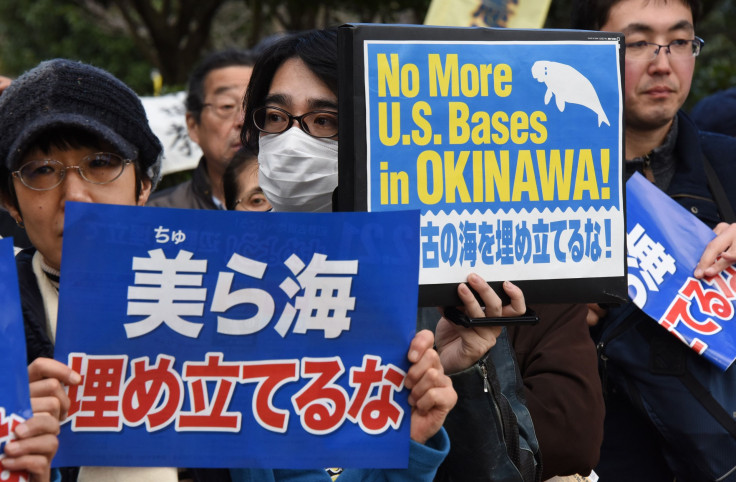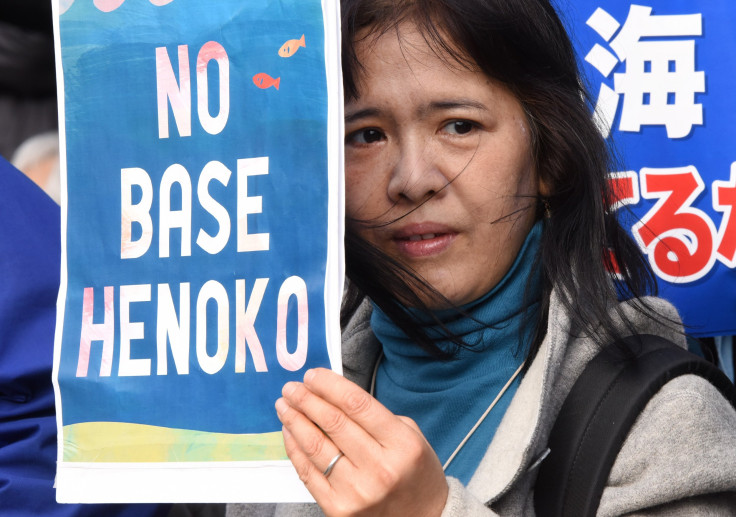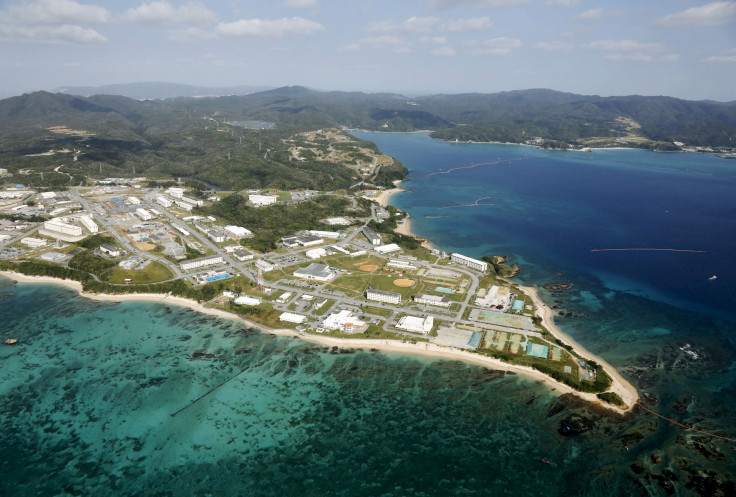Japan To Halt US Okinawa Base Relocation Work But Government Says Plan Intact

Japan’s Prime Minister Shinzo Abe agreed Friday to temporarily suspend work on the relocation of a U.S. Marine Corps base on Japan’s southern Okinawa island, reportedly saying he wants to end the dispute with the island’s government and residents, who want the base moved off the island. The government in Tokyo wants to move the airbase to another, less populated location on the island.
The base is currently at Futenma, a densely populated urban area, and Tokyo was working on reclaiming land offshore Camp Schwab — another U.S. base on Okinawa, in Henoko — where it would eventually relocate the airbase.
The United States has over 25,000 troops across bases on Okinawa, accounting for more than half of U.S. troops stationed in Japan under a bilateral security treaty that dates back to World War II. There has long been local resentment against the U.S. presence on Okinawa, which grew sharply after American troops gang-raped a 12-year old girl, the BBC reported.

Complaining about crime, noise, the potential for accidents associated with large military bases and also about environmental degradation caused by land reclamation, Okinawans want the base to be removed from the island altogether.
Abe said his government was accepting a court-mediated proposal of suspending relocation work to give more time for talks with Okinawa authorities to succeed. He also said, however, that the government’s stance on relocating the Futenma base within Okinawa had not changed, according to Reuters.
“There is no change to the government’s stance that the relocation to the Henoko area is the sole choice for the restoration of the Futenma base,” Abe told reporters.
The Japanese government had suspended construction work voluntarily for a month in 2015 to give time for talks with the islanders, but the two sides could not find a meeting ground. The central government and local authorities have been locked in a legal battle since.

The government’s sudden change of stance, which had till now been to continue with the relocation work, could be a vote-garnering attempt by Abe, ahead of the parliamentary elections scheduled for this summer, the Associated Press (AP) reported.
The relocation, which has already been delayed by two decades, is one of the few sore points in Japan’s relationship with the U.S., according to Bloomberg. Relocation of the Futenma base is planned as part of a bilateral agreement signed in 1996, which was aimed at reducing U.S. military presence on Okinawa, the AP reported.
The U.S. would reportedly shift 8,000 to 10,000 of its Marines from Okinawa to places like Hawaii and Guam in the 2020s, but would do so only after Futenma’s relocation, which is currently scheduled for 2025.
© Copyright IBTimes 2024. All rights reserved.





















